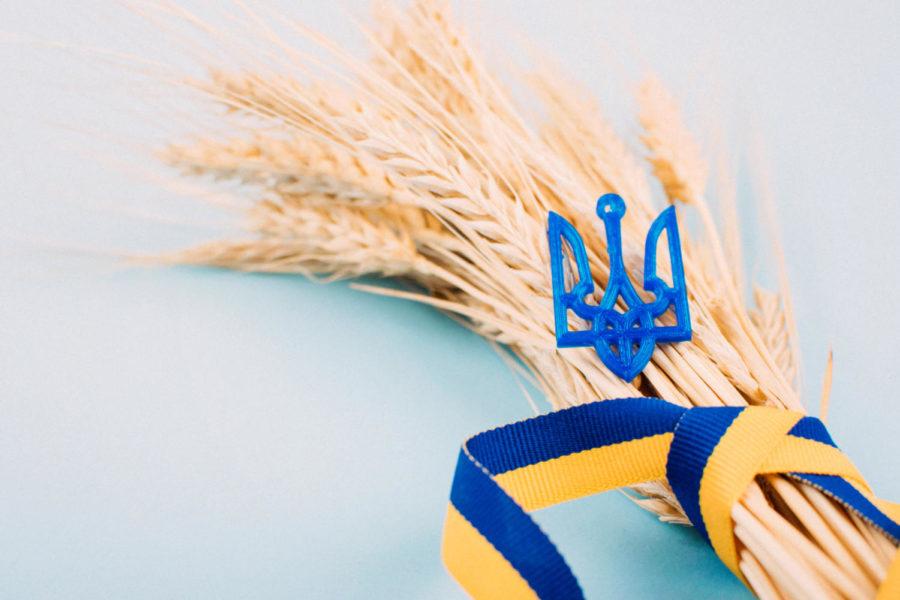Schmitt: World leaders call for more food amid European conflict
Courtesy of irissca via stock.adobe.com
Columnist Dawson Schmitt explains why the world is asking for more food amid the Russian invasion of Ukraine.
March 6, 2022
I often find it humorous, albeit never under humorous circumstances, when mainstream and non-agriculture media write large stories about agriculture and conventional foods. Supposedly, there are more interesting things happening around the world than agriculture, but when stories about wheat make the front cover, you know we are in trouble.
We saw it back in October, when even a YouTuber Tim Pool, a political pundit I occasionally watch, covered food prices hitting records we haven’t seen in years. While I was not shocked that he covered the issue due to the prominence rising food prices have held in the media over the last year, it still broke away from his usual commentary.
However, most recently, the Russian invasion of Ukraine has caused substantial concern for food prices and security around the world. Now, Vox, which is known for being anti-industrial agriculture, highlights the concern due to Russia and Ukraine’s role in supplying food for the world.
Russia and Ukraine export about 14 percent of the world’s corn and 26 percent of the world’s wheat, where Ukraine is known as the “breadbasket” of Europe. Among some of Ukraine and Russia’s top customers for wheat are a few of the top food-insecure countries globally, making them the most vulnerable to disruptions in food exports.
As someone involved in agriculture and writes about commodity markets nearly every day, this is something that I have been watching for more than a year as the phases of the pandemic evolved and prices began surging. There was already concern before Russia, but the recent conflicts exacerbated problems that make it seem like the world will be looking at fewer supplies of not only wheat but corn and soybeans as well.
For months, South America has been dealing with substantial drought caused by a La Niña weather pattern that tends to favor dry conditions that cause problems for Argentina and Brazil’s growing seasons. And not only are they dealing with bad weather, but now they are looking at fewer fertilizer supplies due to Russia halting fertilizer exports at least until April.
Belarus, another major fertilizer supplier, currently has sanctions placed on the country that limit its access to markets that consume its fertilizer supply. I’m not saying that the sanctions are not rightly imposed. I am expressing that the current policies amid a crisis remain counterintuitive when fighting food insecurity concerns.
Companies and individuals are now calling for increased crop production in the European Union and the United States with the supply concerns. InVivo, a large farm cooperative group in France, said that the EU might have to back down on its Farm to Fork program to grow enough wheat. Already, the EU’s proposals could likely reduce crop output and raise food prices while reducing the bloc’s competitiveness in global markets.
At the same time, more wheat means more fertilizer needed to grow the crops. A recent column in the New York Times put it well, saying, “Fertilizer scarcity jeopardizes global crop production at a time when some or all of the 13 percent of global corn and 12 percent of global wheat exports from Ukraine could be lost.”
You could say that we are in the middle of a food crisis, with the world questioning whether there will be enough to feed those already not suffering from malnutrition or food insecurity. Conventional agriculture always receives a slew of criticism until we question if there is enough food to continue feeding everyone. This is another example of ECON 101: conventional practices have allowed countries to use their comparative advantages in growing certain crops that benefit other countries through trade.
However, there are now calls urging countries that have the food to not enact food protectionism that would reduce or halt exports of food leaving the country, which is a tactic used to quell unhinged price increases.
Conventional agriculture surely has its quirks that can cause environmental issues, but there is never a “one size fits all” approach to growing enough food to feed the world. However, industrial agriculture has been shamed for years, with opponents arguing that America grows too much grain and not enough other foods for people to consume. Yet when war erupts in Europe, many people start to understand the importance of that grain and grain exports for other countries; the argument comes in a full circle.
Even in an article by the UK-based outlet The Guardian, Member of Parliament Neil Parish, who chairs the environment committee, said that while the environment should be considered and protected, food holds a priority. The environment needs to be protected, but geopolitical tensions and conflict should not result in less food. In the absence of war, heading towards policies that result in less to eat is a disaster that culminates into food insecurity when conflicts arise.







